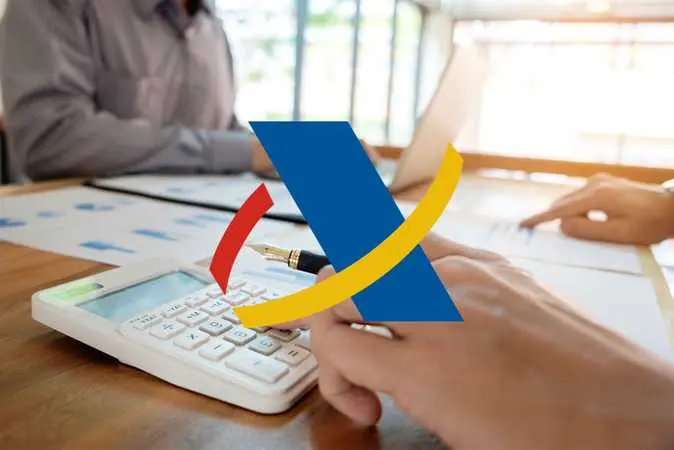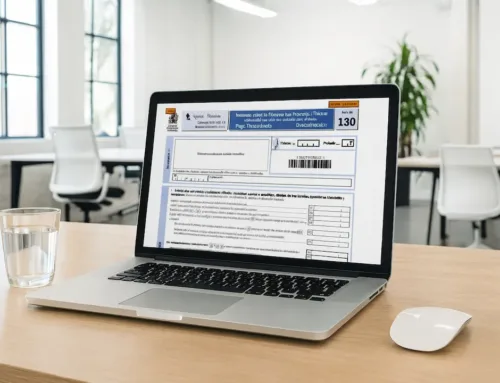
What does “hacer el trimestre” mean for freelancers in Spain
At our tax advisory office in Palma de Mallorca, many freelancers and small business owners ask us when registering as self-employed what “hacer el trimestre” means and which taxes they need to file. This expression refers to the legal obligation to declare taxes every three months to the Spanish Tax Agency. It is a key administrative task to stay up to date with tax obligations and avoid penalties.
What does “hacer el trimestre” mean?
“Hacer el trimestre” means filing quarterly tax returns and payments corresponding to the self-employed person’s or business’s activity. These returns are submitted at the end of each fiscal quarter, following this calendar:
- 1st Quarter: January – March → Filed from April 1 to 20
- 2nd Quarter: April – June → Filed from July 1 to 20
- 3rd Quarter: July – September → Filed from October 1 to 20
- 4th Quarter: October – December → Filed from January 1 to 30 of the following year
During these periods, self-employed individuals must submit the tax forms relevant to their activity and fiscal regime. Failing to file these forms on time may result in late fees, interest charges, and financial penalties. If you need help filing your quarterly taxes in Palma de Mallorca, feel free to contact us.
Tax forms freelancers must submit
The tax forms vary depending on the fiscal regime, type of activity, and whether the self-employed person has employees or performs specific operations. Here are the most common ones:
Form 303 – Quarterly VAT return
The most common form. It reports collected VAT (charged to clients) minus paid VAT (paid to suppliers). Mandatory for almost all VAT-liable freelancers.
Form 130 – Personal income tax (IRPF) prepayment
For freelancers under the direct estimation regime (standard or simplified). It involves paying 20% of net profit (income – expenses) as an advance on the annual IRPF. Must be filed even if there’s no profit.
Form 131 – IRPF in objective estimation (modulos)
For those under the modular regime. Tax is calculated based on objective factors (e.g., size of premises, staff employed), not actual income.
Form 111 – Withholding tax return for employees or professionals
If the freelancer employs staff or contracts professionals and applies withholdings on invoices, this form is used to declare and pay those amounts to the tax authorities.
Form 115 – Withholding on rental payments
For freelancers who rent a commercial property and apply withholding on the rental invoice. This must be declared quarterly.
Form 349 – Intra-community operations
Filed if the freelancer buys or sells goods/services within the EU and is registered in the ROI (Register of Intra-Community Operators).
What happens if I don’t file the forms?
Failing to file or filing late may lead to serious consequences:
- Late filing surcharges (with or without prior notice).
- Interest on arrears if the return was payable.
- Financial penalties for repeated or serious non-compliance.
This is why it’s essential to rely on a tax advisor specialized in freelancers who ensures your returns are correctly filed and submitted on time.
We take care of your quarterly returns
At our accounting firm in Palma, we handle all your quarterly filings and ensure your business stays compliant with the Spanish Tax Agency. We help you with:
- Accurate calculation of your taxes (VAT, IRPF…)
- Preparation and submission of tax forms
- Avoiding errors or late filing penalties
- Legally optimizing your taxes based on your activity
If you’re self-employed or run a small business in Mallorca and want to avoid tax-related headaches, let professionals handle it for you. We’ll manage your quarterly returns with accuracy and punctuality.

What does “hacer el trimestre” mean for freelancers in Spain
At our tax advisory office in Palma de Mallorca, many freelancers and small business owners ask us when registering as self-employed what “hacer el trimestre” means and which taxes they need to file. This expression refers to the legal obligation to declare taxes every three months to the Spanish Tax Agency. It is a key administrative task to stay up to date with tax obligations and avoid penalties.
What does “hacer el trimestre” mean?
“Hacer el trimestre” means filing quarterly tax returns and payments corresponding to the self-employed person’s or business’s activity. These returns are submitted at the end of each fiscal quarter, following this calendar:
- 1st Quarter: January – March → Filed from April 1 to 20
- 2nd Quarter: April – June → Filed from July 1 to 20
- 3rd Quarter: July – September → Filed from October 1 to 20
- 4th Quarter: October – December → Filed from January 1 to 30 of the following year
During these periods, self-employed individuals must submit the tax forms relevant to their activity and fiscal regime. Failing to file these forms on time may result in late fees, interest charges, and financial penalties. If you need help filing your quarterly taxes in Palma de Mallorca, feel free to contact us.
Tax forms freelancers must submit
The tax forms vary depending on the fiscal regime, type of activity, and whether the self-employed person has employees or performs specific operations. Here are the most common ones:
Form 303 – Quarterly VAT return
The most common form. It reports collected VAT (charged to clients) minus paid VAT (paid to suppliers). Mandatory for almost all VAT-liable freelancers.
Form 130 – Personal income tax (IRPF) prepayment
For freelancers under the direct estimation regime (standard or simplified). It involves paying 20% of net profit (income – expenses) as an advance on the annual IRPF. Must be filed even if there’s no profit.
Form 131 – IRPF in objective estimation (modulos)
For those under the modular regime. Tax is calculated based on objective factors (e.g., size of premises, staff employed), not actual income.
Form 111 – Withholding tax return for employees or professionals
If the freelancer employs staff or contracts professionals and applies withholdings on invoices, this form is used to declare and pay those amounts to the tax authorities.
Form 115 – Withholding on rental payments
For freelancers who rent a commercial property and apply withholding on the rental invoice. This must be declared quarterly.
Form 349 – Intra-community operations
Filed if the freelancer buys or sells goods/services within the EU and is registered in the ROI (Register of Intra-Community Operators).
What happens if I don’t file the forms?
Failing to file or filing late may lead to serious consequences:
- Late filing surcharges (with or without prior notice).
- Interest on arrears if the return was payable.
- Financial penalties for repeated or serious non-compliance.
This is why it’s essential to rely on a tax advisor specialized in freelancers who ensures your returns are correctly filed and submitted on time.
We take care of your quarterly returns
At our accounting firm in Palma, we handle all your quarterly filings and ensure your business stays compliant with the Spanish Tax Agency. We help you with:
- Accurate calculation of your taxes (VAT, IRPF…)
- Preparation and submission of tax forms
- Avoiding errors or late filing penalties
- Legally optimizing your taxes based on your activity
If you’re self-employed or run a small business in Mallorca and want to avoid tax-related headaches, let professionals handle it for you. We’ll manage your quarterly returns with accuracy and punctuality.
Seguir leyendo
Gestoría en Palma de Mallorca.
Si buscas una gestoría cerca de ti, asesoramos a empresas en el ámbito laboral, fiscal y contable. También somos una gestoría administrativa en Palma y realizamos traspasos de vehículos.














